There are few industries that haven’t felt the
seismic impact of digital transformation by now, but some seem incapable of
being changed with code and tech at first glance. Alcohol is certainly one of
those areas.
Given its primary purpose–consumption–one
might ask how a beverage that is wholly dependent on a bodily process
(drinking) could possibly be improved upon or digitally enhanced. After all, we
can’t really change how we consume liquids. But what we can change is
everything that surrounds the moment we bring a glass or a bottle to our lips.

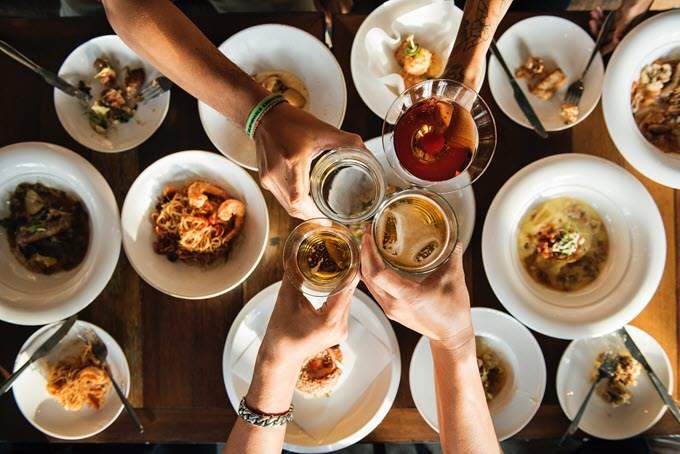
The activities directly and indirectly
associated with drinking alcohol are where we’re seeing digital transformation
occur, from how alcohol is made to how it impacts transportation and the ways
we do or don’t consume it. Here are four key examples of new tech that’s
helping people drink smarter.
IntelligentX: AI Beer
The craft beer market is nearing saturation, but the answer to any buzzkill caused by an overload of brands, many of which are now brewing similar-tasting concoctions, may already be here: IntelligentX.
IntelligentX is a smart brewing program that
collects data on what kind of beer you enjoy drinking and uses an AI algorithm
to tweak how the beer is brewed based on yours and others’ feedback. It’s a
subscription-based program through which a case of 10 specially brewed and
cleverly named ales–Pale AI, Black AI, Golden AI, and Amber AI–are delivered
to you on a regular basis.
But these are just base flavors. As
IntelligentX collects your feedback through its app, the AI algorithm will
learn your taste preferences and find other customers in its system with
similar preferences to pull together new recipes that are more personalized but
also introduce new flavors you may not have tried. This provides an enriched
tasting experience.

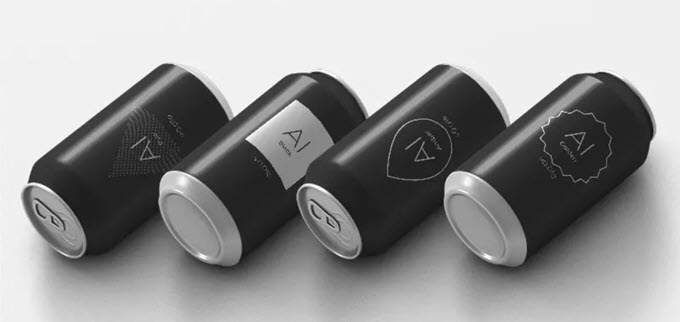
Note that deliveries are limited to mainland
UK at the moment, but IntelligentX plans to expand beyond this region in the
near future. The first deliveries of this AI beer are expected to arrive at
customers’ doorsteps in May 2019. You can set the frequency of your deliveries
as well as cancel your subscription at any time.
While IntelligentX won’t replace any of your
favorite breweries, it’s AI approach to brewing a continuously improving beer
certainly could be a catalyst for transforming the way traditional breweries
operate and compete for the loyalty of serious beer connoisseurs.
Uber’s Intoxication ‘Gauge’
If you’re old enough to drink legally, you should be responsible enough to know when you can’t drive. In recent years, transportation network companies like Uber have made the decision to not drive easier, with Uber claiming it has actually reduced drunk driving through its service.
It’s much safer to pay someone a reasonable
fee to have them take you where you need to go when you’re under the influence
than it is to drive their on your own. But that doesn’t mean every intoxicated
Uber passenger is as congenial as drivers would hope–far from it, there have
been countless publicized incidents of inebriated passengers being quarrelsome
and unruly.
Uber is now filing a patent for application
functionality that would use machine learning to determine the state of someone
based on how they’re using the Uber app–e.g., if they’re making typos or
imprecisely clicking a button or holding their device abnormally–as well as
factoring in things like the speed at which they’re walking.

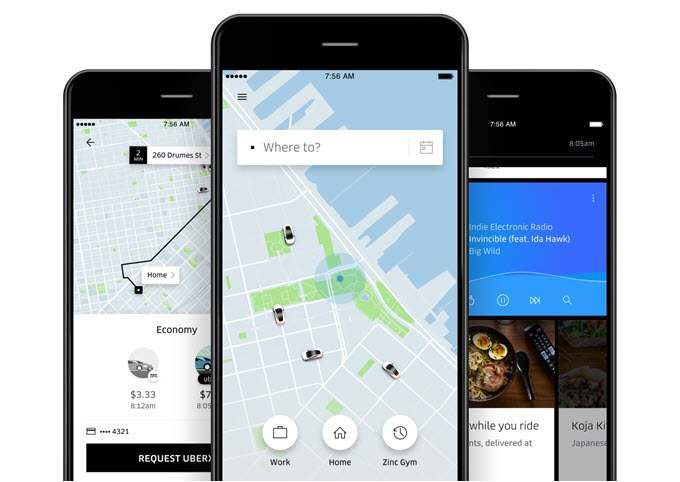
While Uber hasn’t outright stated their intentions
for this functionality, it has many rightly assuming it would be most useful in
helping drivers know ahead of time if they’re going to be picking up someone
who’s intoxicated. And if an app user seems to be in a seriously altered state
of mind, they may only get matched with drivers who have the proper experience
in dealing with those situations. These individuals may also be barred from
ride-sharing.
All around, the hope seems to be that this new
application functionality would improve Uber’s service and make things safer
for all: those who are drinking, those who aren’t, and those who are taxiing
them around.
But it’s not just intoxicated passengers Uber
has to worry about. There have also been incidents where drivers take advantage
of these individuals. As for protecting riders from these unfortunate
situations, it’s something else Uber is also going to have to answer for,
likely through the implementation of technology.
BACtrack Smartphone Breathalyzer
The reality is, sometimes it’s hard to tell if
you’re at or above the legal intoxication limit to drive, and reaching that
point can vary between individuals based on their bodies. It’s important to
understand your limits, both in terms of how you feel and what’s legally
permitted if you’re operating a vehicle.
To accurately ascertain your blood alcohol concentration (BAC), you need a breathalyzer. You might think these are reserved for police officers to use when they pull over intoxicated drivers, or for people who must prove their temperance after having been charged with drunk driving or other alcohol-related incidents that result in conviction; but BACtrack offers a personalized breathalyzer option for individuals who want to be certain they’re okay to operate a vehicle after they’ve been drinking.

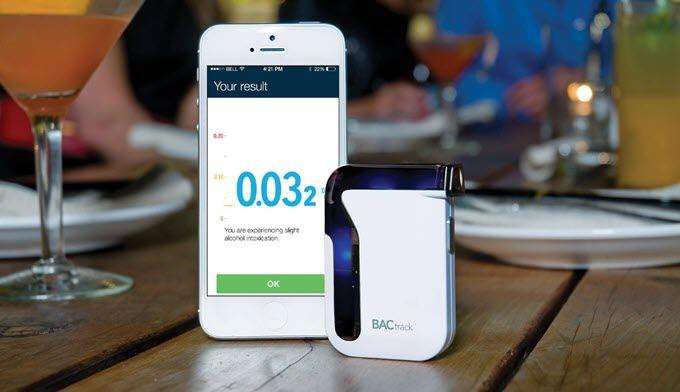
BACtrack provides several compact
breathalyzers that sync to a mobile app to indicate your BAC. In other cases,
you may want to track someone else’s BAC. BACtrack’s ZeroLine functionality
will then provide an estimated timeframe in which your BAC will return to
normal. Ultimately, getting this data real-time can help you and others you’re
with make smarter decisions.
But BACtrack isn’t only good for telling yours or someone else’s BAC. You can also attach notes to your BAC scores to keep track of what you ate and drank, where you were and with who, and how you felt when you took a breathalyzer test.
Having this history can help you make better decisions that result in healthier or safer outcomes. And having a compact, portable breathalyzer like BACtrack that meets the demands of our digital age can mean the difference between a safe night and one that ends badly.
Sober Grid Social Network
Despite all of the great technology permeating the alcohol industry to make it more enjoyable for those who drink for the taste and safer for those who drink for fun, drinking isn’t for everyone–and it can’t be a part of life for some. Sobriety isn’t easy, but Sober Grid, a social networking app that helps people stay sober, is making it more manageable.
Boasting over 130,000 users as of 2019, Sober
Grid is the largest mobile-based community of sober people, and it’s completely
free.One of the app’s key features is the “Burning Desire” button. Users can
press it if they have a serious urge to imbibe, and others in the Sober Grid
community can reach out to provide support.

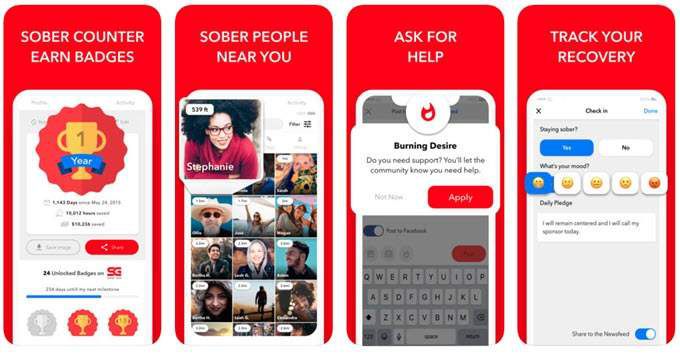
Similar to other social networks, Sober Grid
users can create profiles and connect, chat, and share over a newsfeed with
others in their local area and around the world using what’s called The Grid.
In addition to joining a community of other sobriety-minded individuals, Sober
Grid users also have access to 24/7 Certified Peer Coaches who have been
trained and certified to help people get sober and stay sober.
In building these relationships with others
who are on a quest to stay alcohol-free and having access to support coaches,
users can find confidence, encouragement, and solidarity on their journey
mission to cut alcohol out completely.
Enjoy Responsibly
Technology is changing the alcohol industry,
from how people do or don’t consume beverages to the choices they make in those
contexts. What’s important is the technology being introduced is helping people
be smarter about how they manage their relationship with alcohol, ultimately
creating a more responsible drinking culture. Is there other technology you’re
aware of that’s changing the alcohol industry? Let us know in the comments.
